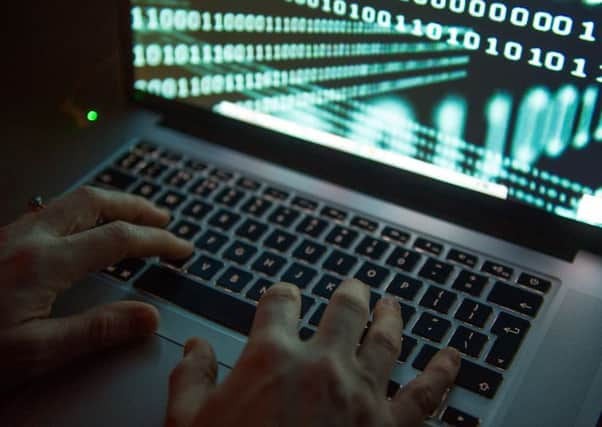Andrew Alexander: Tech making judiciary into modern public service


This weekend marked the Law Society’s first ever access to justice “hackathon” which saw lawyers and IT professionals joining forces to design sustainable, scalable solutions to help improve access to justice issues.
Like many public services, the justice system has seen significant financial constraints in recent years. With cuts to legal aid, court closures and a range of other factors, access to justice is becoming more challenging for people across Scotland, particularly in rural areas.
Advertisement
Hide AdAdvertisement
Hide AdWe think there is great potential in using technology to help address this, and it was fantastic to see some really creative and innovative projects come to life in just 48 hours.
Unfortunately there are times when people abuse technology, for example, criminals pretending to be solicitors in an attempt to scam members of the public and take their money. While we do all we can to prevent this from happening, it’s still important to be aware of the risks and know how to avoid potential scams.
In the past, scam law firms have created slick websites promoting their services (often replicating the websites of real law firms) in the hope of deceiving members of the public.
At the Law Society, we hold a database of all practising solicitors in Scotland and Scottish solicitors who work abroad. So before you deal with a firm of solicitors, search for them using the “Find a Solicitor” tool on www.lawscot.org.uk. If the firm or the individual solicitor doesn’t appear in the search results, they may not be entitled to practise law.
The majority of solicitors in Scotland now have a professional ID called a Smartcard. Each card has a unique number which can be used to check the solicitor’s status. You can ask your solicitor to show you this card to prove they are who they say they are.
Smartcards also provide solicitors with a secure digital signature which allows them to sign documents and contracts electronically, and to receive signatures from others knowing they come from a trusted system. The juridical value it has is for integrity, so you can be sure the text received is the same that was sent, and that no hacker has changed it.
Solicitors are increasingly working with clients and other lawyers in different jurisdictions and the Smartcard will provide a universally recognised accreditation for Scottish solicitors in Scotland, the UK and across Europe, as well as allowing them to sign and deliver contracts securely at the touch of a button. In the future, it is envisaged that the Smartcard will open up opportunities for secure e-mail and secure document exchange.
The wider use of new technology – including the improvement and expansion of existing videoconferencing services, use of digital recording and a bold move towards virtual courts – is required to turn our justice system into a modern public service. We would encourage the government to build on the foundations of the ambitious Digital Strategy for Justice in Scotland.
Advertisement
Hide AdAdvertisement
Hide AdA “digital divide” between people with the skills and facilities to access online services and those without still exists, and our justice system must provide access to all. However, we believe that new technology can deliver significant benefits and cost savings to the justice system.
The legal profession can be innovative and entrepreneurial and this weekend’s hackathon illustrates that dynamism and enthusiasm for providing solutions for people that need them.
• Andrew Alexander is head of policy with the Law Society of Scotland